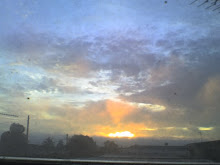
Upon a time as this, I am Nigeria. I am the future of my nation; I am the fresh breeze that blows when the atmosphere is saturated with musk and mist. I am the new wine that is served at the dawn of the day of celebration; I am Nigeria, that is who I am.
Many a time that one attempts to comprehend the state that the nation has found herself in today, one is held spellbound by the dire situation that a people so blessed with immense abundance find themselves in, a decade into the 21st century. Many have given way to despondency, many have given way to helplessness, and many wallow in the pool of their own pessimism, while many others join the bandwagon of dysfunctional citizens, perpetrating the error embedded within the system. No, not I.
I am the correction; I am the updated and upgraded citizen that will cleanse the corruption that has permeated the system. In me and my likes llies the solution to the myriad of challenges the nation is confronted with. Even in the face of perceived obstacles and seeming impossibilities; even in the face of daunting and seeming insurmountable hurdles and deliberately planted booby traps, the Nigeria in me gives me the hope that it will get better, and soon too.
From the coast to the desert fringe, from the dale to the plateau peaks, there is a fundamental reawakening occurring. There is a yearning by the new Nigerian, a yearning for change, for hope and for belief that the legacy of our heroes past will not be in vain, even if the reality of the contemporary situation tell us different.
Now is the time for the new heroes to emerge, new heroes that will take the nation by the boot straps and lead her into a world that is pregnant with opportunities and accomplishments for the discerning, the strong willed and the believers.
My Nigeria is a beacon of hope, to me and to the generations unborn, my Nigeria is a positive challenge to the nations of the Earth, my Nigeria imbues in me the spunk to face the vicissitudes inherent in the prevailing system and come through victorious with pomp, like the Caesars of yore navigating the Appian after well won victory.
I am Nigeria, that is I, along with you who share my dream. I am Nigeria, I am the change that my nation needs. I am the calm that the new infant brings to the heart of her mother who tethered on the brink to bring forth a life. No longer will the negative and opaque cloud my drive for a better nation. No longer will the will to be the best that I can be diminished by any and whatever. I will be the smile that plays on the lips of the elderly ones who never thought they will live to see the day that the nation will assume that position that had so much eluded it since the days of their infancy. I am a new attitude, for I am Nigeria.
As I become my country, so the message rings loud and clear to my Nigerian brothers and sisters from far and near. This is my country, our country. This is the time to claim, our nation, not just for ourselves, but for the millions that will walk these climes long after we must have gone. I am Nigeria, yes I am.



